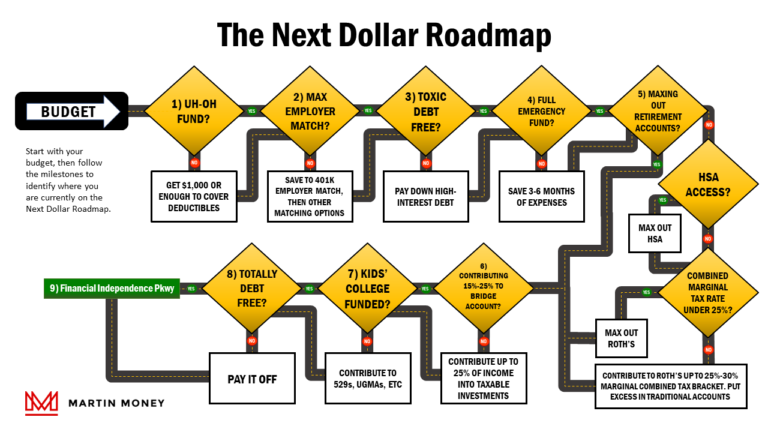What are the pros and cons of Health Savings Accounts (HSA)?
Overall, the tax benefits of HSAs make them a formidable saving option for investors. However, one should consider their own health and financial circumstances before taking steps to enroll in an HDHP and HSA.
Health Savings Accounts are a great way to save for future medical expenses, basically creating a completely tax-free way to cover those expenses.
For a detailed rundown of what HSAs are and how they work, check out our previous post which took a deep dive into the nuances of Health Savings Accounts.
In this article, we’ll cut to the chase and highlight four pros and four cons of HSAs to help you quickly determine whether or not they may be right for you.
HSA PROs:
1) Tax Treatment
By far, the biggest benefit of HSAs is their tax treatment.
Contributions made to HSAs are on a pre-tax basis meaning you can deduct those contributions from your income or, if contributions are made through an employer-sponsored plan, no income taxes are withheld those contributions.
Furthermore, any earnings from investments made within the HSA remain tax-free.
Finally, any qualified withdrawals made from an HSA are completely tax free.
In summary, when the funds are used for qualified medical expenses, HSA dollars are never taxed.
There isn’t another account that offers triple-tax efficiency (contributions, earnings, and withdrawals) like that.
And that’s not all.
When contributions are made through an employer-sponsored plan, those dollars also evade Medicare and Social Security taxes too. That’s an additional 7.65% of tax avoidance (6.2% for Social Security and another 1.45% for Medicare).
2) Investing Your Money
Avoiding taxes on all those contributions is nice, but so is the opportunity to invest them.
Not only do HSAs give their account owners a tax-shelter, they also provide an opportunity to seize the power of compounding interest by investing the account assets.
Plan options may vary, but HSAs provide access to the broad market of equities and securities available through a standard brokerage or other retirement account.
This gives an HSA the same growth potential as other investment account types, only serving to increase their potency all the more.
3) No Employer HSA Option? No Problem.
A third benefit of HSAs is the option to open an account on your own if your employer doesn’t provide one. (Only 12% of employers do.)
This means you can take matters into your own hands and open an account for yourself if your employer doesn’t provide an option at work.
Many of the large investment companies have HSA plans available to the public, so opening an account may be as easy as a half-hour on the internet.
You will have to be enrolled in a High-Deductible Health Plan (HDHP) in order to open an HSA on your own.
Unfortunately, only 28% of employers offer an HDHP, significantly limiting access to HSAs. If you do have access to one you should consider yourself fortunate.
4) Contributions Limits
I suppose you could view this as a pro or a con, but I think the annual contribution maximums are a great benefit of HSAs.
In 2023, individuals can contribute up to $3,850 into an HSA while those covered by a family plan can contribute up to $7,750.
To some people, this may not seem like a lot of money, but it’s more than enough room to save and invest for one’s medical expenses in retirement.
There also aren’t any income restrictions preventing higher earners from participating in HSAs.
5) Another Employer-Contribution
Assuming you are eligible for an HSA through your job, odds are your employer is willing to make contributions to your account on your behalf.
About 80% of employers who offer HSA plans make some sort of contribution on their employee’s behalf.
The employer contribution gives HSAs the same boosting benefit many 401(k) plans receive through an employer match.
Employers are able to make contributions because employees enrolled in HDHPs are less expensive to insure, thus lowering their overall cost for coverage.
6) Your HSA Stays with You…Always
Next, once money goes into your HSA, it is yours forever. There are no vesting requirements, and the money goes with you even if you change jobs.
This feature sets HSAs apart from Flexible Spending Accounts (FSAs) that force you to use any available balance by the end of the calendar year.
With an FSA, you’ll also lose those funds if you leave your employer unless you use any remaining balance for COBRA continuation of your insurance.
The security HSAs provide allow you to invest for the long-term with confidence, leading to a higher likelihood of wealth generation through the accounts.
7) You Can Use HSAs in Retirement for Non-Medical Expenses Too
We’ve already pointed out that HSAs can only be used for qualified medical expenses.
If you use your HSA funds for any other purpose, you’ll owe income taxes and a stiff 20% penalty on the withdrawal.
However, once you turn 65, you can make withdrawals from an HSA as you would from a traditional retirement account.
That is, withdrawals can be made for any purpose but you will owe income tax on the amount withdrawn.
The great thing about this flexibility is that you don’t have to worry about over-funding the account.
If medical costs end up being lower in retirement that you anticipated, you can just draw down the balance as if it was another IRA.
Just remember that you can begin penalty-free withdrawals from an IRA when you turn 59.5, but you’ll have to wait another 5.5 years for the HSA.
HSA CONs:
1) You Must Be Enrolled in a High Deductible Health Plan (HDHP)
We touched on HDHPs earlier.
In 2023, for a health care plan to qualify as an HDHP, the following criteria must be met:
- For Individuals – An annual deductible of at least $1,500 with an out-of-pocket max of $7,500
- For families – An annual deductible of at least $3,000 with an out-of-pocket max of $15,000
True to their name, HDHPs place more of the risk for medical expenses on the shoulders of the insured.
This level of risk may be difficult for some people to carry, especially before they’ve had time to allow their HSA balances to build up.
It also may not make much financial sense for those who incur regular expenses for medicine or treatment for a medical condition.
Since more of the burden is carried by the insured in an HDHP, more of those costs will come out of pocket bringing the plan’s total value into question.
2) Early Withdrawal Penalties
We’ve already let the cat out of the bag on this detail, but we’ll revisit anyway.
If you make an unqualified withdrawal from an HSA before age 65, you’ll owe income tax and a 20% penalty on the withdrawal.
That’s one of the stiffest penalties the IRS levies for an early withdrawal, so be sure you avoid this if at all possible.
This also means HSAs are not a very good candidate as an emergency fund for anything other than medical costs.
3) Subject to Audit
Due to the tax-advantaged nature of HSAs and the endless varieties of places and things you can actually spend the HSA money on, the IRS reserves the right to audit your expenses to insure they meet the standards and requirements of HSA plans.
After all, most HSAs issue a debit card to account owners making access to the funds extremely simple.
While we didn’t add this as a feature in our list above, it does open the door for foul play or mistakes that undermine the purpose of these plans.
So, how long do you need to hang on to those receipts? I’m afraid the answer isn’t abundantly clear.
I’m not an accountant, so I did a little research and found that some professionals recommend holding onto the receipts for three years while others say you should hold onto them as long as your account is open.
Since your account could be “open” your entire life, this seems like quite the burden to carry.
A “middle ground” I’ve seen is 5 to 7 years.
You might want to just make it easier on yourself and store all your HSA receipts electronically, so they are a little more difficult to lose and easier to organize.
4) Not a great inheritance
I feel like I’m the only guy banging on this drum sometimes, but I feel like HSAs have very unremarkable benefits as an inheritance.
The good news is inherited HSAs are not subject to early withdrawal penalties.
The bad news is the entire inherited balance must be liquidated by the heir(s) in the year of the deceased’s death.
This also means the entire inherited balance is subject to normal income taxes in that tax year.
Technically, this isn’t all that unfair. The money’s never been taxed and the IRS isn’t asking for anything more than you’d have to pay if you’d made this money from working.
The exception to these tax rules is for spouses. HSAs can be inherited by a spouse and basically become their own without any taxes or penalties.
So, why do I think HSAs are a poor inheritance?
It’s primarily because other types of inheritance offer a much higher degree of flexibility and, therefore, are easier to manage from a tax standpoint.
For example, if you inherit $250,000 in an HSA and you file as married filing jointly, you’ll be in the 24% marginal tax bracket with only $94,200 of income space before you find yourself in the 32% bracket.
Meanwhile, if you inherit $250,000 in an IRA you’ll have up to 10 years to withdraw the funds which provides a much higher degree of control over how and when you pay taxes for your inheritance.
Finally, if you inherit $250,000 in the form of an asset or assets like a house or stocks, you get a free step up in basis and won’t owe any income taxes on your inheritance.
Personally, I’d prefer a tax-free inheritance, but I understand you can’t control how every penny falls at the end of your life.
At the very least, it would be nice if you could roll the balance into your own HSA or have ten years to liquidate it.
Conclusion
HSAs are an excellent savings vehicle and tax planning tool.
If you are in reasonably good health and have access to an HDHP, you should investigate signing up for an HSA.
In our post about prioritizing savings vehicles, HSAs with an employer match rank at the top of our list and only fall behind other plans that have an employer match component when the HSA lacks one.
That’s a long way of saying, all things equal, HSAs are the optimal tax-sheltered savings vehicle.
I should also add that there is an abundant variety of ways employers offer contributions to HSA plans and they are not equal.
Making an optimal decision may require time and careful analysis. Our post titled “HSA vs FSA: Which is Better for You?” may be helpful as you evaluate your own options.







